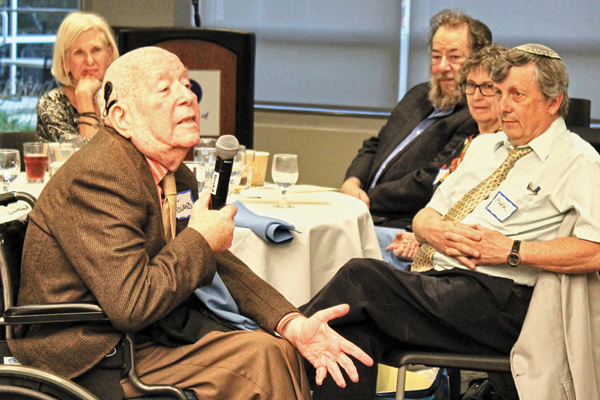
Excerpt from The Dayton Jewish Observer
Dr. Eric L. Friedland, who for 30 years served as Sanders Professor of Judaic Studies for United Theological Seminary, University of Dayton, and Wright State University, died Jan. 16 at age 79.
Born in New York and raised in Boston, Friedland arrived in Dayton in 1968 with a doctorate in Judaic studies from Brandeis University; he moved here to fill the new Sanders professorship, conceived by Rabbi Selwyn Ruslander of Temple Israel and funded through the Harriet Sanders Trust at the temple. Friedland taught two courses a year at UTS, UD, and Wright State until his retirement in 1998, and at Antioch College until 1982.
In an interview with The Observer when he retired, Friedland recalled there was an air of excitement about teaching Judaism on the college level after the Vatican II Council in the ‘60s.
“It was beginning to catch on. It was something of a novelty,” he said. Even so, the Sanders program was a rarity in the academic world: Friedland had to meet the needs of a Protestant seminary, a Catholic university, a state university, and a private liberal arts college under the aegis of a single professorship.
Because none of Dayton’s institutions of higher learning could fully support a Judaic studies position, his professorship was developed for several schools. The Sanders Trust funded the program for its first 10 years; the schools then took over the funding.
At UD, Friedland taught courses on basic Judaism and the Holocaust, in line with the university’s adherence to Vatican II, which he described as acknowledging “the special role accorded Judaism in the work of God.”
At UTS, his teaching helped seminarians know Judaism on its own terms, to help them arrive at an understanding of how and why Christianity came to be.
His focus at Wright State was for students to recognize Judaism as vital to a diverse, pluralistic society. Because of a requirement in the Wright State Religion Department, Friedland also taught the New Testament course there.
“I’d give something of a Jewish stance, presenting a scholarly view without any doctrinal suppositions,” he told The Observer.

